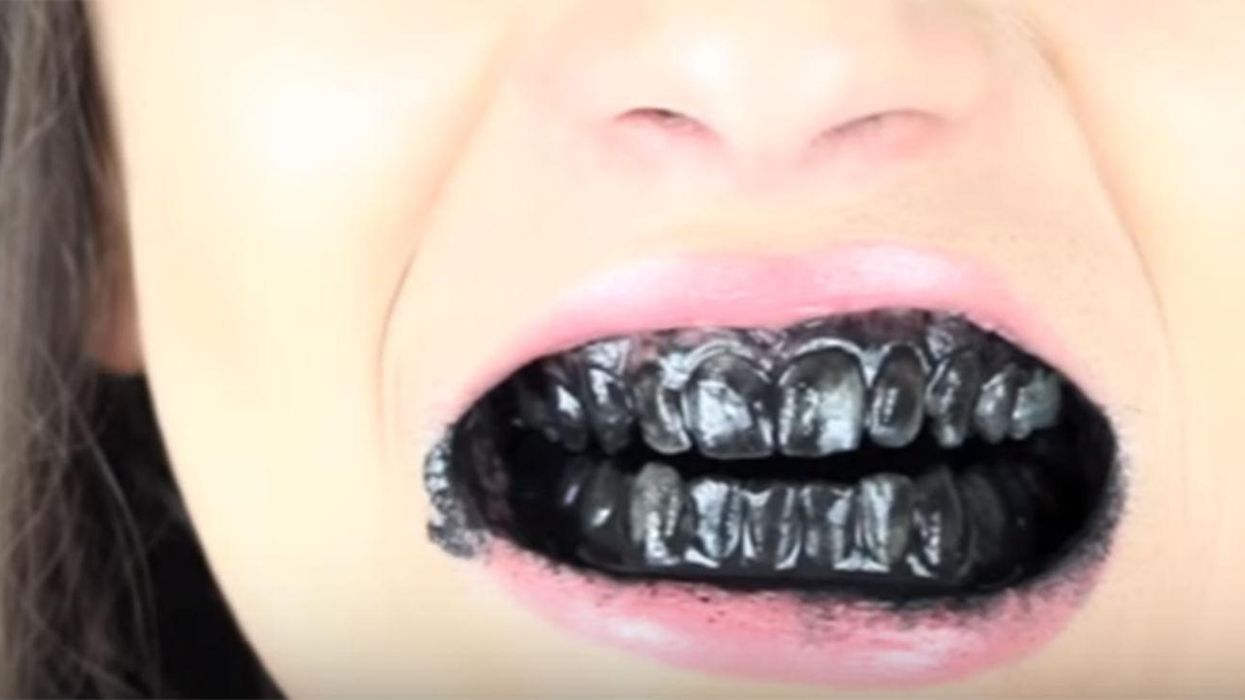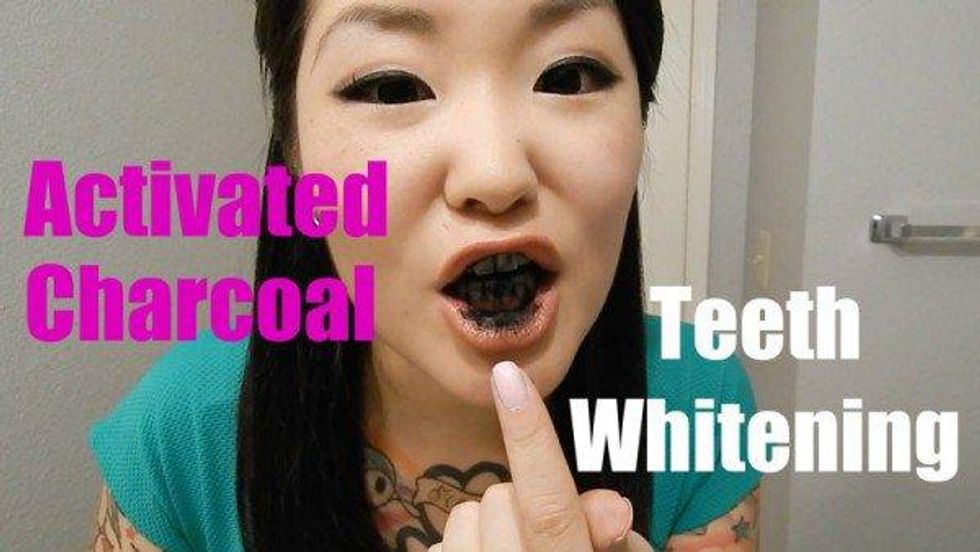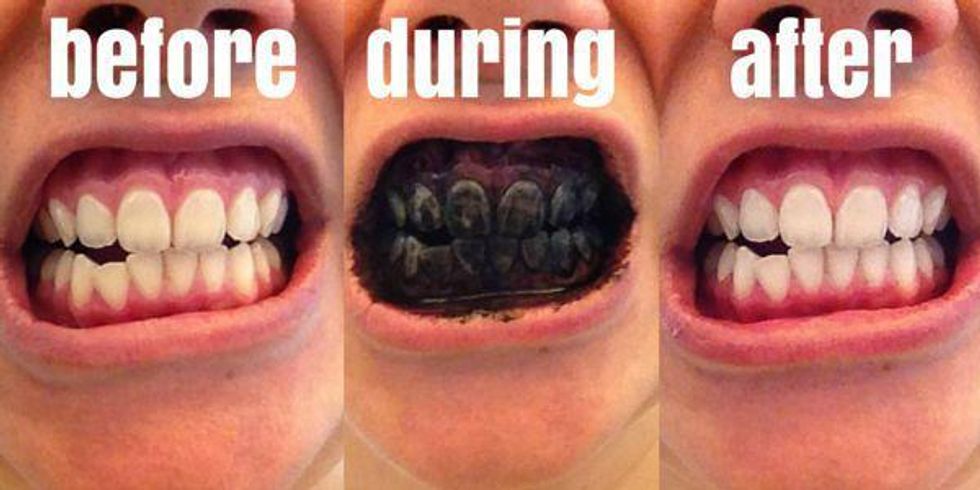News
Aimee Meade
Aug 10, 2016

Charcoal has long been used to treat poisoning, drug overdoses and stomach troubles and recently it has even been dubbed the secret to great skin. However, the latest charcoal trend leaves more than a bad taste in your mouth.
Activated charcoal - a powdered version that is treated with an oxidising agent - is increasingly being used by bloggers and vloggers to whiten teeth.
According to some, the natural adhesive qualities of the charcoal bind with surface-staining substances like coffee, tea, wine and plaque and remove them from your teeth for good.
To use, mix a small amount of charcoal with water, put the paste on your toothbrush and clean your teeth for a few minutes. While you might look like you have a mouthful of rotters when brushing, you will - allegedly - be left with a bunch of pearly whites.
However Dr Nigel Carter, chief executive of the Oral Health Foundation says it is risky business. "There is no scientific evidence for charcoal to work as a tooth whitener," he told indy100.
Any anecdotal evidence for this may be due to the abrasive qualities of the charcoal which, when brushed on the teeth, removes some superficial stains. But by doing so you are also in danger of removing some of the enamel on the tooth surface, leading to dental erosion and further, more significant problems for the teeth and gums.
Historically soot (charcoal) and honey was a popular early toothpaste, said Carter, but brushing this combination on teeth can quickly lead to rotten teeth.
I would advise sticking to the professional whitening products and toothpastes, these have been tested to ensure they are safe and actually do what they say. Ultimately you should listen to the advice of your dentist.
More: Eight of the most ridiculous things people have done in the name of 'beauty'
More: 100 years of male and female beauty trends in the US - in a single minute
Top 100
The Conversation (0)















